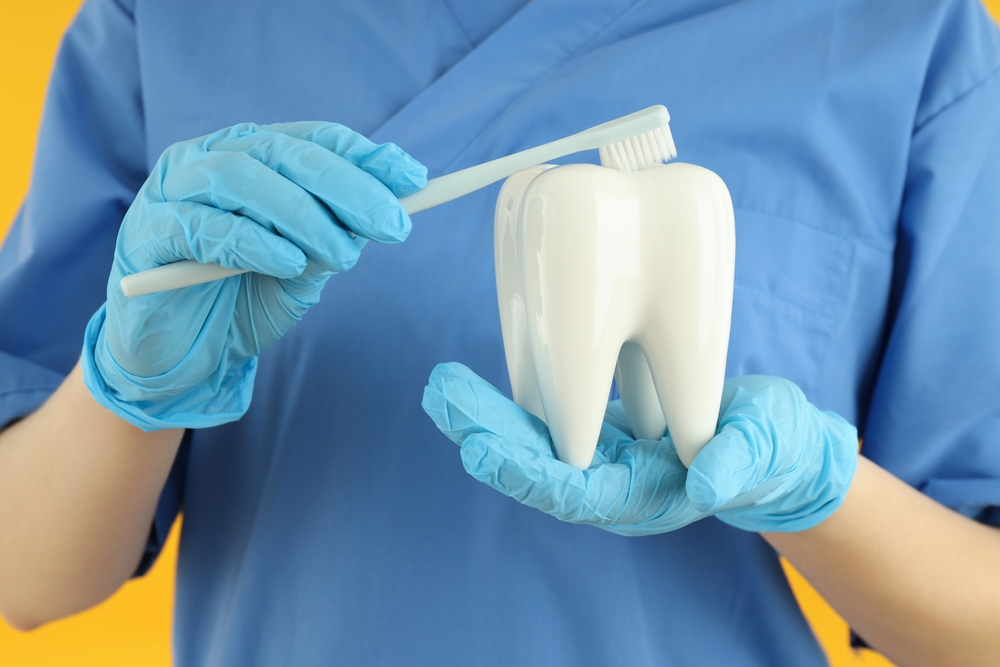
Welcome to our blog! Today, we’re discussing something you use daily— your toothbrush! We’ll explore some points recommended by our professional dentist near you on why it’s so important to keep your mouth healthy. We’ll cover everything from different types of bristles to how you should brush. Let’s get started and learn how to keep that smile bright and healthy!
Choosing the Right Toothbrush
Choosing a toothbrush can be tricky with so many choices. Should you go for a manual or an electric one? And what about bristle types—soft, medium, or hard? The important thing is to pick one that feels right for you. Dentists often suggest a soft-bristled brush because it’s gentle on your teeth and gums, helping to keep them healthy by removing plaque and debris without causing any harm.
The Importance of Bristle Quality
Bristles matter! Look for toothbrushes with rounded nylon bristles – they’re softer and won’t damage your teeth or gums. Stay away from brushes with hard or medium bristles because they can damage enamel and make your gums pull back. Remember, it’s not about brushing harder, but brushing smarter for a healthy smile!
Manual vs. Electric Toothbrushes
People often debate about manual versus electric toothbrushes. Both can clean your teeth well, but electric ones have some benefits. They usually come with timers and pressure sensors to help you brush for the right amount of time and not press too hard. Also, the way electric brushes move can get rid of plaque better than brushing manually.
Replacing Your Toothbrush
Using an old toothbrush can make it harder to keep your mouth clean. As the bristles wear down, they don’t work as well. Dentists say you should get a new toothbrush every three to four months, or sooner if the bristles look worn out. A new toothbrush cleans better and keeps bacteria from building up in your mouth.
Proper Brushing Technique
No matter what kind of toothbrush you have, how you brush, and the importance of good brushing habits, they all impact your ability to keep your mouth healthy. Hold your brush at a 45-degree angle to your gums and use small, circular movements to clean all sides of your teeth—the front, back, and chewing surfaces. And don’t miss your tongue and the roof of your mouth – they also need cleaning to get rid of bacteria and keep your breath fresh.
What Happens If You Do Not Use Quality Toothbrushes?
Using a poor-quality toothbrush can have several negative consequences for your oral health:
- Ineffective cleaning: Cheap toothbrushes might not clean your teeth and gums properly, leading to plaque buildup, cavities, gum disease, and bad breath.
- Damage to teeth and gums: Some low-quality brushes have harsh bristles that can harm your enamel and gums, causing issues like gum recession, enamel erosion, and tooth sensitivity.
- Short lifespan: Cheap toothbrushes may wear out quickly, making them less effective. They might also break easily, needing frequent replacement.
- Risk of bacterial growth: Poor-quality brushes may be more prone to bacterial growth, increasing the chance of infections and oral health problems when you use them.
- Lack of comfort and convenience: If a toothbrush isn’t well-designed, it might not feel comfortable to hold or use, leading to uneven cleaning and missed spots.
Here are some quick tips to maximize manual toothbrush to maximize the effectiveness:
To maximize the effectiveness of a manual toothbrush, focus on technique and consistency. Use gentle, circular motions to clean each tooth and reach all surfaces, including the fronts, backs, and chewing surfaces. Brush for at least two minutes, twice a day, ensuring thorough coverage. Replace your toothbrush every three to four months, or sooner if the bristles become frayed. Additionally, consider incorporating flossing and mouthwash into your oral hygiene routine for comprehensive care.
In short, it’s worth getting a good toothbrush with soft, well-aligned bristles and changing it regularly. This can help your oral health. But remember, it’s not just about the brush; you need to brush properly and see your dentist regularly too. That way, you can keep your mouth as healthy as possible.
Looking for Expert Dental Care to Complement Your Oral Hygiene Efforts?
Look no further than Acro Dental! Our experienced team of dentist in Boston is dedicated to providing comprehensive dental services customized to your individual needs. From routine cleanings to advanced treatments, we are here to help you achieve and maintain optimal oral health.
Schedule your appointment today!
